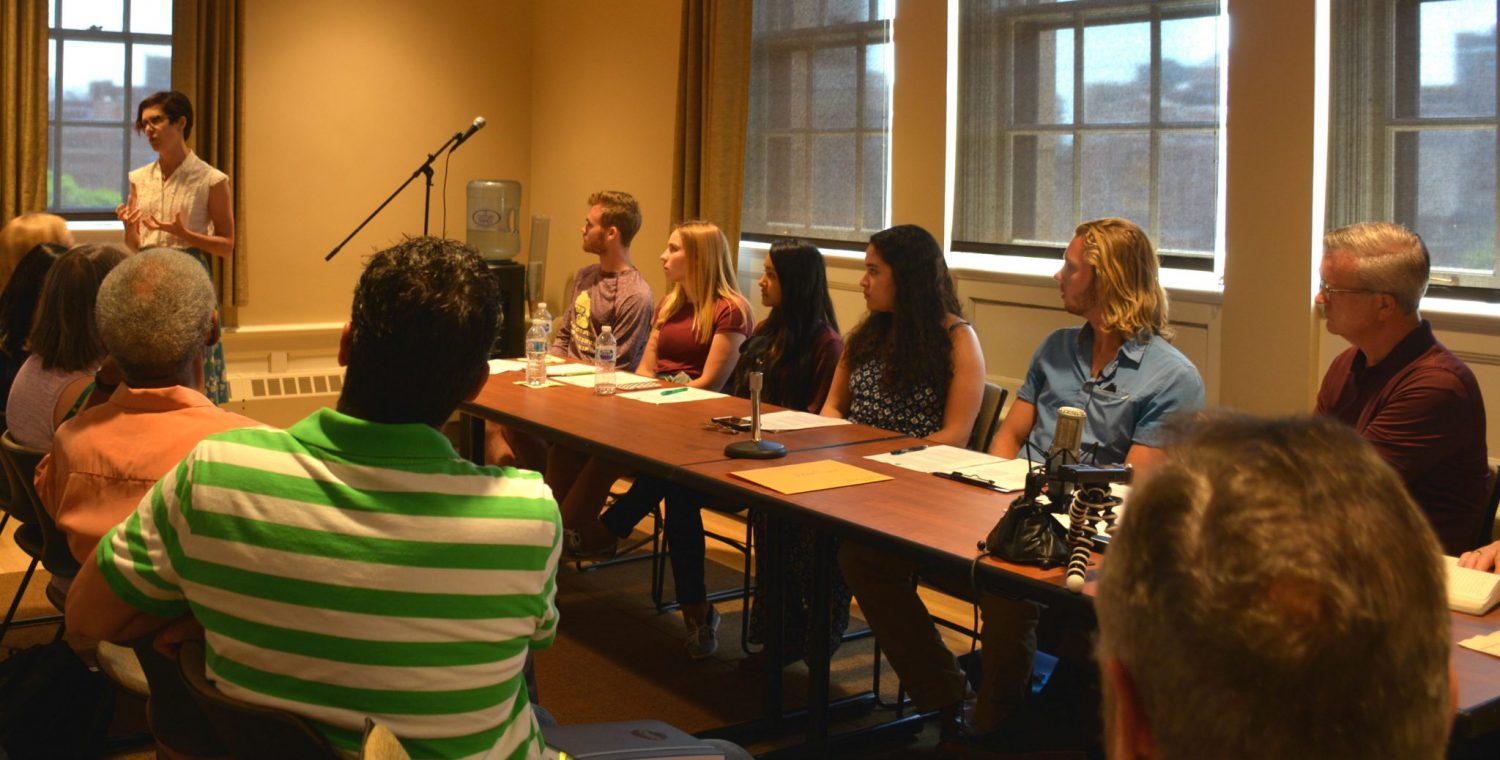
Community members spoke out Wednesday afternoon on whether two Memorial Union rooms — both named after alumni who were members of a 1920s campus organization called “Ku Klux Klan” should be renamed.
Members of the Union Council, the governing body of the Wisconsin Union, held a public forum, attended by about 50 people, to hear others’ suggestions and concerns about the future of the Fredric March Play Circle and the Porter Butts Gallery. The speakers demonstrated that there is a divide on the issue.
Gary Kriewald of Madison, for example, said he is “vehemently opposed” to changing the name of the Porter Butts Gallery because of Butts’ contributions to the arts at UW-Madison, as well as the personal influence Butts’ galleries had on him as a student.

“I would like to hear someone defend the proposition that one youthful indiscretion negates a lifetime of positive achievement and devotion to the university,” Kriewald said.
On the other side, UW-Madison student Rena Yehuda Newman urged the Union Council to change the name of the rooms, saying they promote a culture that “perpetuates a racist legacy” on campus.
“Affiliation with racist and terroristic organizations, even in one’s youth, is not something that we have to ignore or should ignore as a campus community,” Newman said. “The way we reckon with our history is reflective of how we move forward into our future.”
According to Newman, these rooms may cause students with historically marginalized identities to feel uncomfortable, unsafe or “othered” on campus, as well as unable to succeed. To not change the names would be wrong, Newman said.
Sherrill Randall, the daughter of Porter Butts, said her father would have been supportive of students from underrepresented groups, however. She claimed he did not have racist views, condemned the national Ku Klux Klan and was strongly inclusive of others.
“The reason for him being in that group had nothing to do with ideology, it was simply a social group to discuss fraternity matters,” Randall said. “I want to say to the people that feel so threatened by this, that he’s on your side, and I wish he were here to speak for himself.”
While both Butts and March were part of the Ku Klux Klan interfraternity society, it is unclear whether the group was affiliated with the national Knights of the Ku Klux Klan during its time on campus.
Ronald Montano, another speaker at the forum, suggested that more research needs to be done to determine whether Butts and March were associated with the national Ku Klux Klan organization. He also said he felt some were using the issue “to push their own agendas forward.”
“This is a classic example of a false premise being carried forward without proper due diligence,” Montano said.
Greg Jones, president of the Dane County chapter of the NAACP, said that whether or not Butts and March actually carried out actions prompted by the national Ku Klux Klan is irrelevant, because “affiliation and connection by name only has already placed this university in a delicate position.”
“The image left by the name KKK will always be there — it is up to this body to reconcile history and reality,” he said. ”I find it difficult that the lasting image by the name ‘KKK’ can be reconciled without some serious discussion, discourse and changes being made in the spaces named after those individuals.”
Following student backlash over a report examining campus ties to white supremacy and a student filing a hate and bias report related to the names of the rooms, Wisconsin Union announced plans to temporarily cover the names of the Porter Butts Gallery and the Fredric March Play Circle at the beginning of the 2018-19 school year.
Another public forum on the issue will be held tonight at 5 until 6:30 p.m. in Old Madison East. The decision on whether the spaces will be renamed will be finalized later this year.



